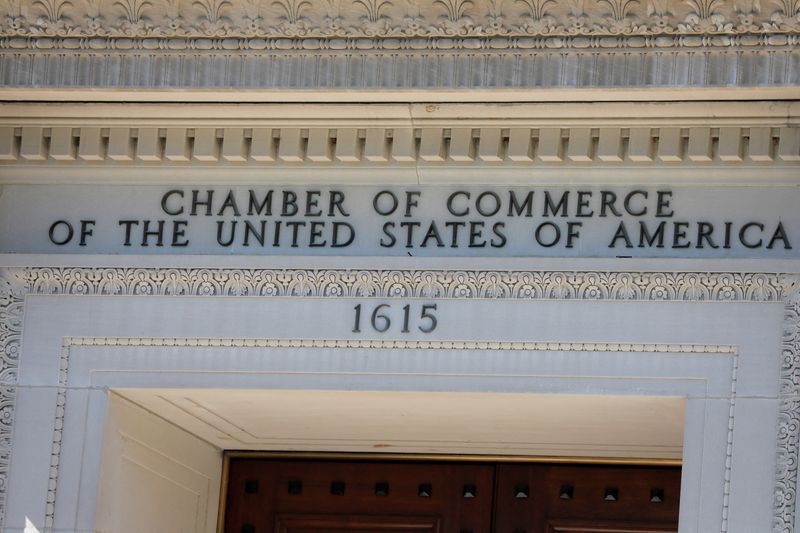By Jonathan Stempel
(Reuters) -The U.S. Chamber of Commerce on Friday sued the federal government, challenging a new law that for the first time gives Medicare the power to negotiate drug prices with pharmaceutical companies.
In a complaint filed in federal court in Dayton, Ohio, the chamber said the pricing program violated drugmakers' due process rights under the U.S. Constitution by giving the government "unfettered discretion" to dictate maximum prices.
It also said the program would impose exorbitant penalties on drugmakers that don't accept those prices, and amounted to an ultimatum: "agree to whatever price the government names, or we'll smash up your business."
The U.S. Department of Health and Human Services administers Medicare through its Centers for Medicare & Medicaid Services.
A spokeswoman said the agency will vigorously defend the program, which is already helping lower healthcare costs for older adults and people with disabilities. "The law is on our side," she added.
Friday's lawsuit by the chamber, one of the most powerful U.S. business groups, came three days after Merck & Co filed a similar lawsuit in Washington, D.C.
Both lawsuits contended that price controls would force drugmakers to pull back on developing new drugs, causing long-term harm to Americans and their health.
Other drugmakers have also objected to the pricing program, which is part of last year's Inflation Reduction Act. Pricing changes following negotiations on 10 costly drugs selected by CMS would take effect in 2026.
Americans pay more for prescription drugs than prices in any other country.
The Biden administration hopes to save $25 billion annually by 2031 by having Medicare, the government health plan for people 65 and over, negotiate prices.
White House spokeswoman Karine Jean-Pierre said on Tuesday the government was confident it would win the Merck case.
"There is nothing in the Constitution that prevents Medicare from negotiating lower drug prices," she said.
The chamber also warned that allowing the pricing program would set a bad precedent.

"After all, if the government can impose price controls in the pharmaceutical industry, why not elsewhere?" Chief Policy Officer Neil Bradley said in a statement.
The case is Dayton Area Chamber of Commerce et al v Becerra et al, U.S. District Court, Southern District of Ohio, No. 23-00156.